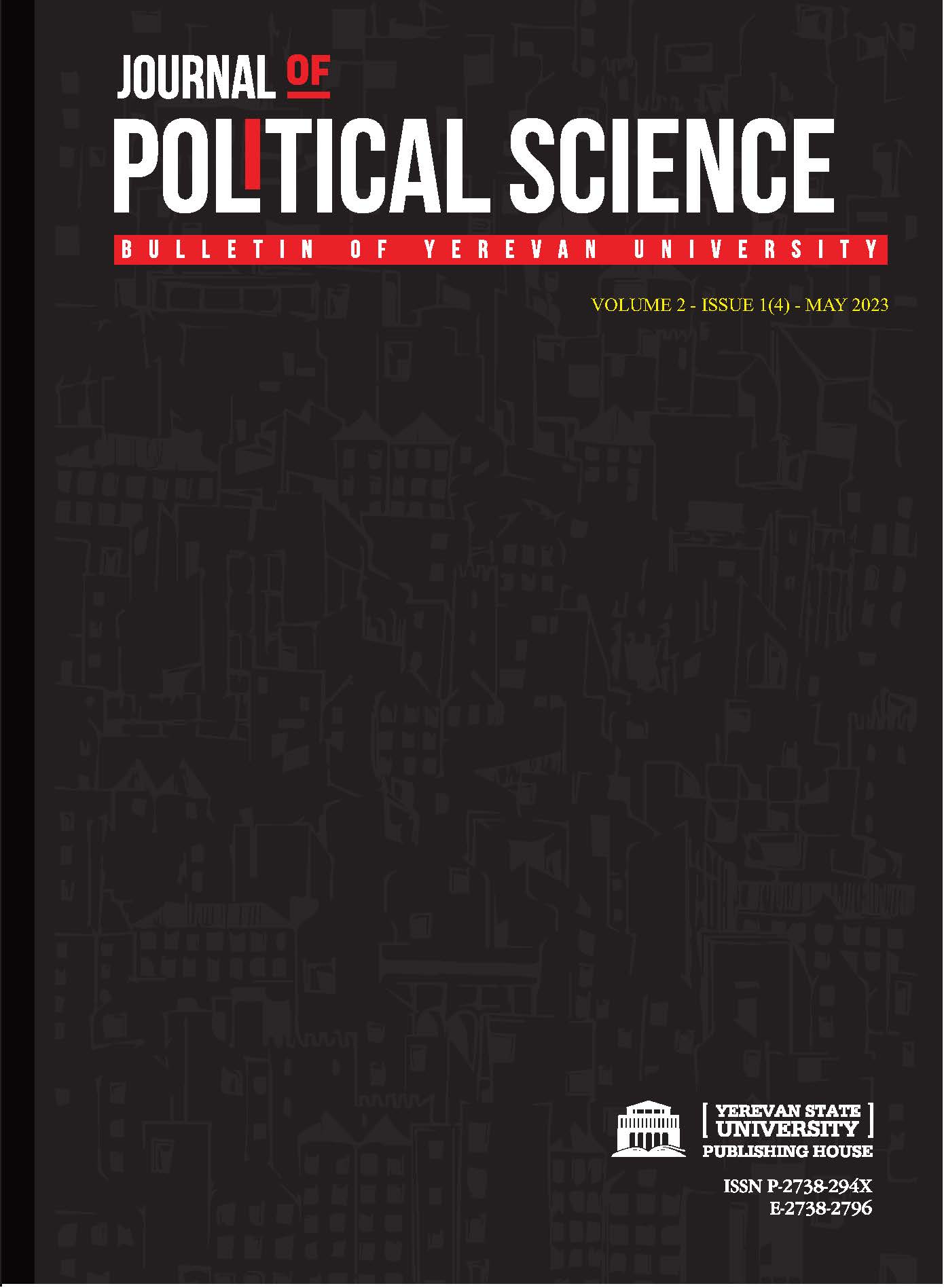In this Issue
Keywords:
European integration, globalization, European security, NATO, Nagorno-Karabakh, war, peace, nation-building, state-building, systemic earthquake, digital authoritarianismAbstract
The modern world order, connected with the collapse of the bipolar system of international relations and the transformation of the balance of power on a global scale, is again facing the challenges of war and conflicts. Under the influence of globalization and European integration, the role of the nation state is being transformed, it has a tremendous impact on its ability to perform traditional functions of protecting its citizens, and the line between domestic and foreign policy is blurred. In this context, modern communication and information technologies that have connected the whole world also have a tremendous impact on civic culture and values, the interests of civil society organizations, encouraging them to actively participate in the political decision-making process. At the European level, these systemic changes were a gradual but clear change in the electoral preferences of the citizens of EU member states.
The end of the Cold War and the collapse of the USSR led to the formation of new independent states and the advent of the era of globalization with cycles of the formation of a new world order. At the same time, the development of events at the beginning of the 21st century showed that wars and crises are becoming a challenge for the modern world order. Therefore, in modern conditions, the consideration of multipolarity, the preservation of the role of the UN as a universal international mechanism acquires civilized and humanitarian significance.
Step by step, the process of strengthening European security began with the support of NATO, taking into account the strengthening of the sovereignty and national interests of the countries of Central and Eastern Europe. If the use of NATO military and political diplomacy tools in the post-Soviet space was supported by a significant number of these countries, then for Russia and Belarus all this was considered an interference that directly affects the national interests of Russia and Belarus, which have bilateral historical, economic, cultural ties. In connection with the fact that Euro-Atlantic integration was considered for the EaP countries as part of the official course towards European integration, issues of relations with NATO were given great attention in the foreign policy of the EaP countries.
Downloads
Published
Issue
Section
License
Copyright (c) 2023 Ashot Aleksanyan, Magda Arsenyan

This work is licensed under a Creative Commons Attribution-NonCommercial-ShareAlike 4.0 International License.



